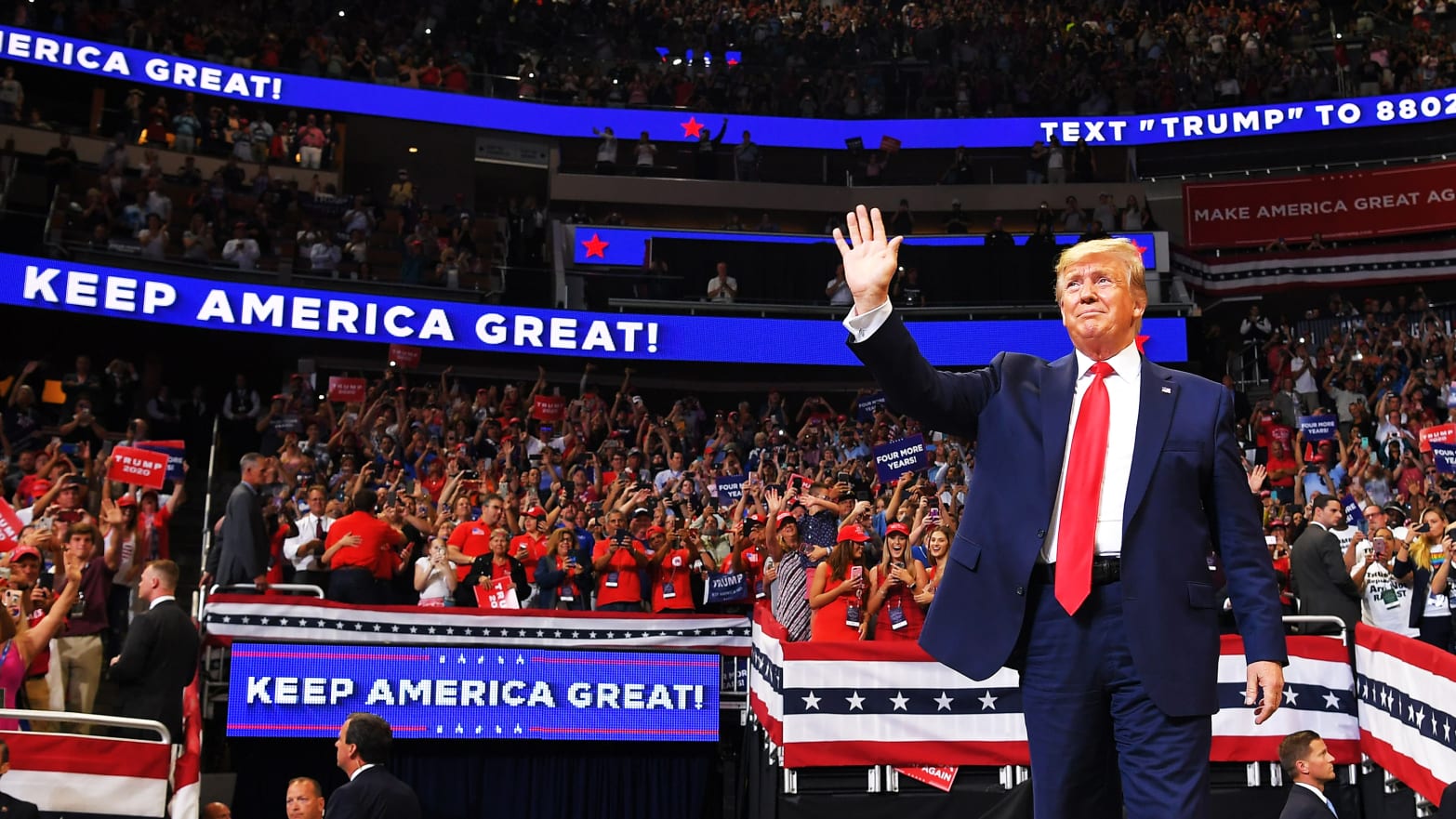
Donald Trump does not govern; he is on a reelection campaign. His trips, speeches, the things he embraces and his quarrels are in pursuit of only one goal: his reelection on Nov. 3, 2020. Parading his well-known slogan “Make America Great Again,” now changed to “Keep America Great” (which insinuates that his years in office have returned the American nation to its greatness), Trump is making use of his loyal electoral base of more than 40%, which helped him reach the White House in 2016, and is expanding that base with centrists unpersuaded by the Democratic option. Despite the unfavorable means and horrifying unpredictability of his behavior, he seems to be on the right track. What has Trump done to deserve so much support? He is always the same and says what he thinks in his simplistic, vulgar, and politically incorrect way. Middle America identifies with and supports him.
To defend the achievements of his administration, Trump boasts about delivering on his campaign promises. With respect to domestic politics, Trump has no difficulty convincing; the healthy economy and low unemployment levels are breaking records. His insistence on the idea that “people will no longer enter the United States unchecked” and the need to build an anti-migratory wall along the Mexican border are both popular. At his popular rallies, one can hear people chanting “build the wall,” even though it presents a moral dilemma for many Americans.
In foreign policy, Trump presents himself as an astute and pragmatic businessman, able to behave aggressively during negotiations, and then suddenly becoming friendly and even caring with the people he has just maligned. Despite not having done much damage so far, this disconcerting strategy is (according to experts) very dangerous. Here are some examples:
Trump accuses China of abusing the United States in commerce, but he recently lowered his tone, curbed his anger and suppressed his desire to punish Chinese exports with considerable increases in tariffs. At the last Group of 20 summit of leading and emerging-market nations in Osaka, the American president met amicably with Xi Jinping and agreed that from now on, China would import more American products than in the past as compensation for the abuses China has committed. The decision pleased American businessmen who feared an economic recession because of a Sino-American trade war.
In Venezuela, Trump wanted to help get rid of Nicolás Maduro’s disastrous regime, a goal that has yet to be realized, but the gesture won him votes from the typically conservative and anti-Castro American Latino community.
In North Korea, Trump plays tug of war by demanding that Pyongyang renounce its nuclear ambitions in exchange for North Korea living in peace and prosperity within the communist regime it practices, as in Vietnam. In the meantime, Trump earns points for his pragmatic rapprochement efforts and the show he staged at the G-20 [summit] when he contrived a meeting with Kim Jong Un and became the first president to step on North Korean soil.
With regard to Israel, Trump recognized Jerusalem as the country’s capital and endorsed the annexation of the Golan Heights, eager to attract votes from the American Jewish community that is always allied with the Democratic Party’s candidate. And in Iran, Trump says he wants to dethrone the ayatollahs with the toughest sanctions ever. However, he decided not to react to the Iranians’ destruction of an American drone, and in his speeches, he invites the same ayatollahs to meet with him to discuss a nuclear deal, one which he condemned and destroyed himself. Good luck keeping up.

Leave a Reply
You must be logged in to post a comment.